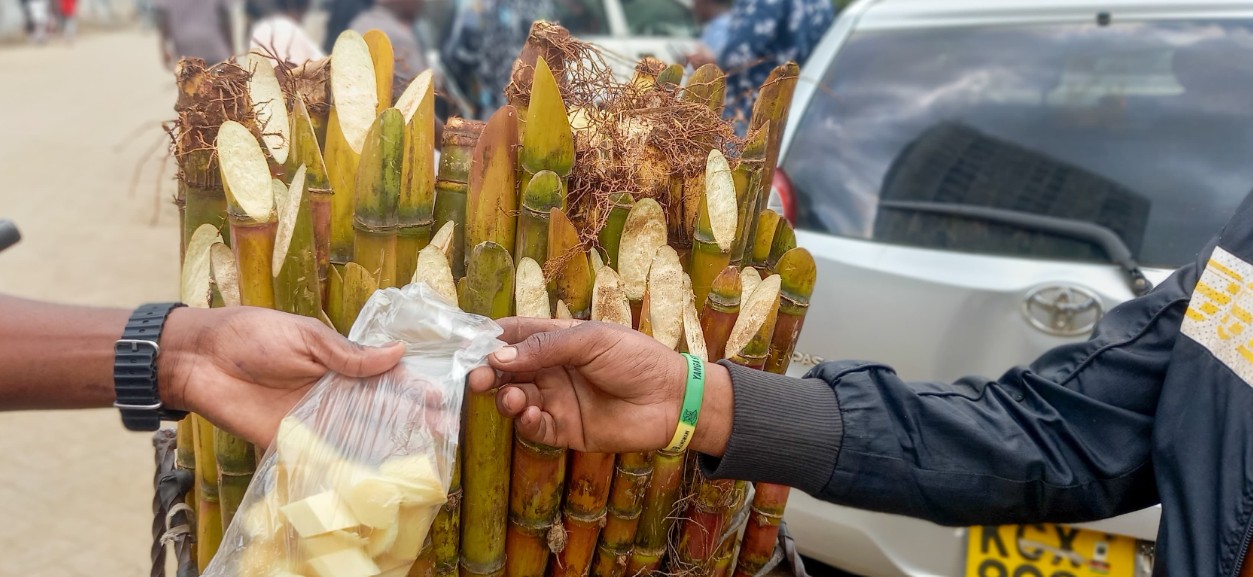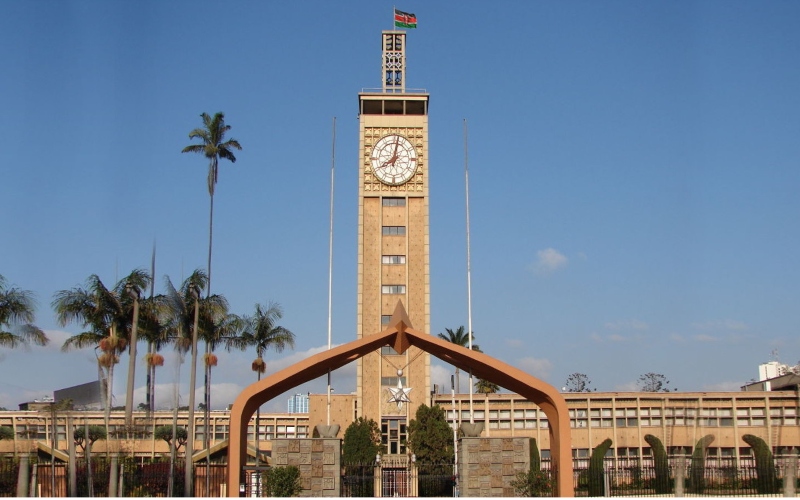Plastic bag ban widely ignored as Kenyan traders cite cost, convenience challenges

A sugarcane hawker in Eastleigh’s Kamukunji area who identified himself as Waweru says he finds the prohibited bags convenient to his business and appealing to his customers.
Nearly 10 years after Kenya banned plastic bags, the banned carriers remain widely used, especially in informal markets and roadside stalls across the country.
A spot check by The Eastleigh Voice reveals that plastic bags are still prevalent not only in Nairobi’s urban markets, but also in rural towns across the country.
More To Read
- NEMA targets Sh2 billion revenue through new digital licensing system
- MPs demand safe disposal of asbestos across Kenya
- NEMA warns over return of banned plastic bags
- NEMA issues 14-day ultimatum to businesses over pending licence applications
- World Ozone Day in Nairobi: Michuki Memorial Park highlights 40 years of ozone protection
- Lawyer moves to court over Nairobi City Park takeover by KFS
Despite the risk of harsh penalties, including up to four years imprisonment, fines reaching Sh2 million, or both, and ongoing government crackdowns, traders remain determined to keep using the banned plastic bags.
From grocery store owners and sugarcane hawkers to vibanda traders and the commonly known ‘chips mwitu’ vendors, most cited the high price of the available alternatives and the easy availability of banned plastic bags as key reasons for continuing their use.
A sugarcane hawker in Eastleigh’s Kamukunji area who identified himself as Waweru says he finds the prohibited bags convenient to his business and appealing to his customers.
When considering the alternative options, commonly known as ‘uhuru bags’ and ‘khaki bags’, Waweru says they do not meet his business needs.
“How would it look for someone to pick chopped pieces of sugarcane from an Uhuru bag?” he wonders.
Good for eating on the go
He adds that most of his customers also prefer being served in plastic bags because they find them convenient and easy to carry while eating on the go.
When asked whether he fears the consequences of using the banned bags, Waweru admits that each day he steps out to work, he’s aware he’s breaking the law — but chooses to rely on faith and hope that higher powers will protect him.
“I use them discreetly, praying to my God that the day passes without any trouble from the environmental law enforcers,” he says with a smile.
James Kagwe, a grocery store owner from Kasarani, shares a similar experience.
He admits to still using plastic bags, but remains constantly vigilant, wary of the environmental officers from the National Environment Management Authority (NEMA) enforcing the ban.
“Even though I have the alternative Uhuru bags at my store, which I also sell to customers, I still rely on plastic ones because the Uhuru and khaki bags have lots of limitations,” Kagwe says.
He, for instance, says the alternative bags are not effective for holding wet products.
Less business-friendly
Nevertheless, he acknowledges that while he uses the alternative khaki bags for packing items like rice and beans, they are proving to be costly and less business-friendly compared to plastic bags.
On matters of law enforcement, he recounts what he describes as a stressful day when he was apprehended for using plastic bags.
After resolving the issue ‘outside the law,’ Kagwe says he felt targeted and singled out by the enforcers, noting that many larger traders still use plastic bags but, in his view, have not faced the same level of harassment he endured.
More alternatives
He thus calls on the government to develop more alternatives that cater to all businesses, regardless of their size.
“If the government provided suitable, convenient and affordable packaging options, or subsidised alternatives, I would switch completely. I don’t want to break the law, but I also need to sustain my business.”
He emphasises that small traders like him are knowingly breaking the law, but need support to comply.
“I recommend increased public awareness campaigns and affordable packaging solutions. Enforcement should be fair and accompanied by education, not intimidation,” Kagwe says.
According to Jane Muteshi, a local chips vendor in the Western region, the alternatives offered by the government don’t adequately meet her business needs as well.
Easy access
She explains that plastic bags remain the most affordable and practical choice for her, and she still has easy access to them despite the ban.
“The khaki bags are much more expensive than plastic ones, and they tear easily when handling oily foods,” Jane says.
She explains that a kilo pack of plastic bags costs roughly Sh60, while the same quantity of khaki bags sells for about Sh240. This price difference alone cuts into her business profits by Sh180, just on packaging costs.
Jane adds that obtaining plastic bags is easy; she simply stays at her 'kibanda', and the suppliers come to her with the bags.
The traders are now calling on the government to rethink its approach to the ban by offering cheaper and more durable alternatives across the board.
Policy makers in the country have also argued that as the debate around environmental sustainability and economic survival continues, one thing remains clear: unless viable solutions are provided, the plastic bag ban, though well-intentioned, may remain largely symbolic on the ground.
The plastic bag ban in Kenya was enacted in 2017, and it encompassed the use, manufacture and import of single-use plastic carrier bags.
Top Stories Today














































